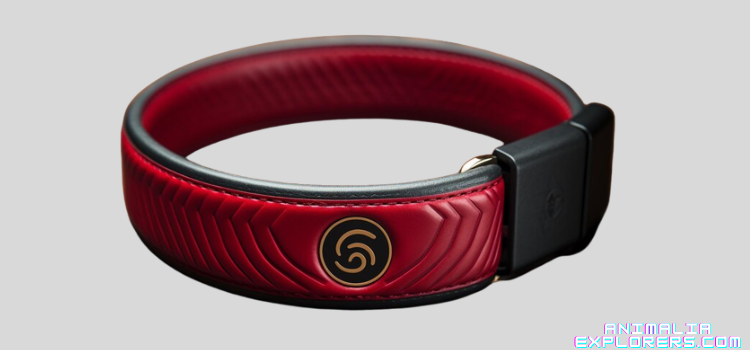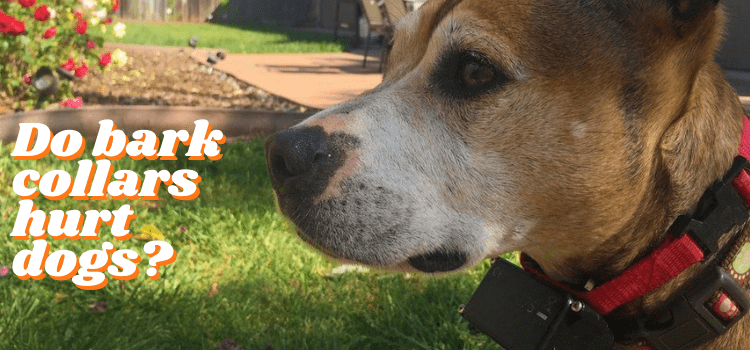The Hidden Dangers: Can a Dog Collars Damage the Trachea?

Welcome, fellow dog lovers! We all know the love and companionship our furry friends bring into our lives. But have you ever considered how something as simple as a dog collar could be harmful to your pet’s trachea? Today, we’ll explore this often-overlooked concern and discuss the hidden risks associated with dog collars. Whether you’re an experienced pet owner or a new one, this post will shine a light on an important topic that every responsible pet parent should know. Join us on this informative journey as we uncover the hidden dangers of dog collars and how they can potentially affect your beloved four-legged family member. So, get your pup, and let’s learn together!
What is a dog collar?
Collars are a common accessory for dogs, but they come with a few hidden dangers. Collars can compress the trachea and restrict breathing. In extreme cases, this can lead to death. If your dog is wearing a collar, be sure to remove it before any activity that might cause increased respiratory stress, like running or playing hard.
Types of dog collars

There are several types of dog collars, each with its own set of benefits and drawbacks. Here are the most common:
- HALO Collars
These collars use a bright light and a bell to help dogs find their owners in an emergency. The downside is that they can irritate the neck skin and ears, and they may cause seizures in some dogs.
: These collars use a bright light and a bell to help dogs find their owners in an emergency. The downside is that they can irritate the neck skin and ears, and they may cause seizures in some dogs. choke - chains/choke collars
These collars are designed to stop dogs from biting or choking people or other animals. They attach around the dog’s neck with a short chain, which can injure the trachea if it gets caught in the throat.
These collars are designed to stop dogs from biting or choking people or other animals. They attach around the dog’s neck with a short chain, which can injure the trachea if it gets caught in the throat. - training collar/leash
This type of collar is typically used for training purposes, such as obedience training or preventing annoying behaviors such as chewing furniture or barking excessively. It has a loop at one end that attaches to a leash, while the other end has a clasp that fits over the dog’s head (or another part of his body). The collar should fit snugly but not be too
The anatomy of the trachea
The trachea is a tube that carries air to and from the lungs. The tube is located in the neck just below the Adam’s apple. Dog collars can push on the trachea, causing discomfort or even damage.
Can dog collars damage the trachea?

The trachea is a tube that links the lungs with the rest of the respiratory system. It’s important to keep it healthy because if it gets damaged, it can lead to difficulty breathing. And while you may think that a dog collar is harmless, that may not be the case.
Dogs can develop neck and head injuries from collars, which can cause problems with their tracheas. If the collar is too tight or if it’s constantly being pulled on, this can cause damage. The trachea also has cartilage and muscle fibers in it, so when these are injured they can become inflamed and scarred. This can lead to difficulty breathing and even death in some cases.
How can you test to see if a dog collar has damaged the trachea?
There are a few ways to test if a dog collar has damaged the trachea. One way is to take the dog for a walk and see if it struggles to breathe. Another way is to put the dog in a situation where they might be able to breathe, such as putting them in a kennel or on a leash, and see if their breathing is labored. You can take the collar off and see if there are any signs of damage.
If the dog seems to be having difficulty breathing, it might be best to take the dog to the veterinarian.
Preventing Injury from Tracheal Collapse

Can dog collars damage the trachea? It’s a common question that many pet owners ask. It’s one of the most common reasons why dogs end up in emergency veterinary clinics.
There are several factors to consider when it comes to whether or not dog collars can damage the trachea. The biggest is the type of collar that you’re using. A traditional metal-style collar will pinch and pull on the neck, which can cause permanent damage to the delicate structure of the trachea. If you’re using a type of collar made out of plastic or nylon, there’s a much lower risk of causing damage.
However, even these types of collars aren’t foolproof. If your dog pulls hard enough against the collar, it could cause it to break and slip over the dog’s head, potentially causing serious injury. So always be sure to keep a close eye on your pet while they’re wearing their collar and be prepared to remove it if necessary to avoid any potential harm.
FAQs
1. How do I know if my dog’s trachea is damaged?
Watch for signs like coughing, gagging, wheezing, or difficulty breathing. Consult your veterinarian if you suspect tracheal damage.
2. Can pulling on a collar cause a collapsed trachea in dogs?
Yes, excessive pulling on a collar, especially with a leash, can potentially cause a collapsed trachea in dogs, particularly in small breeds.
3. Is it OK for dogs to wear collars all the time?
While it’s generally safe for dogs to wear collars during the day, it’s advisable to remove them during unsupervised or off-leash play to reduce the risk of accidents.
4. Can a collar damage a dog’s throat?
Yes, improperly fitted collars or collars that are too tight can cause damage to a dog’s throat. It’s essential to ensure a snug, but not too tight, fit when using collars.
Conclusion
Can dog collars damage the trachea? There is some evidence to suggest that they can, but it’s still not clear whether this is a real danger or if there are any potential benefits to using them. If you’re concerned about the risks posed by dog collars, be sure to talk to your veterinarian about possible solutions.
There is some evidence to suggest that dog collars can damage the trachea, but it’s still not clear whether this is a real danger or if there are any potential benefits to using them. If you’re concerned about the risks posed by dog collars, be sure to talk to your veterinarian about possible solutions.






